Cases
Use cases
Create a free account, send us your data and start making predictions.
DATA SCIENTISTS AS A SERVICE
We help you make better data driven decisions
In today’s data-driven business landscape, companies are increasingly harnessing the power of machine learning to make future predictions and drive data-driven decisions. By analyzing vast amounts of historical data, machine learning algorithms can identify patterns, trends, and correlations that might be otherwise overlooked. These predictive models can be applied to various business aspects, such as customer behavior, market trends, sales forecasting, and resource optimization. With the ability to anticipate future outcomes, companies can make informed decisions, optimize processes, and develop targeted strategies to stay ahead of the competition. Machine learning empowers organizations to unlock valuable insights from their data, enabling them to make proactive, agile, and well-informed choices that drive success and growth in a rapidly evolving market. As technology advances and data availability continues to expand, the role of machine learning in shaping the future of businesses is becoming increasingly pivotal.
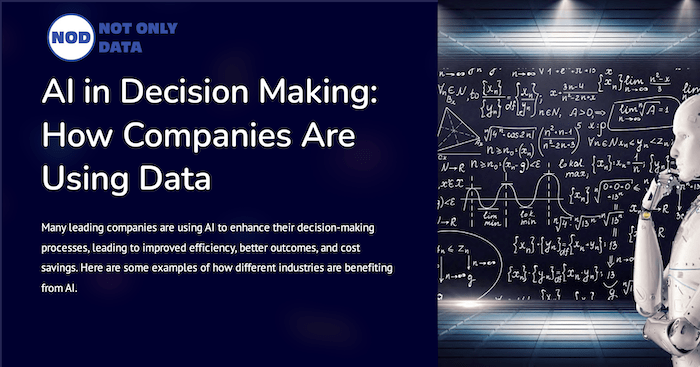
How companies are harnessing the power of AI and ML
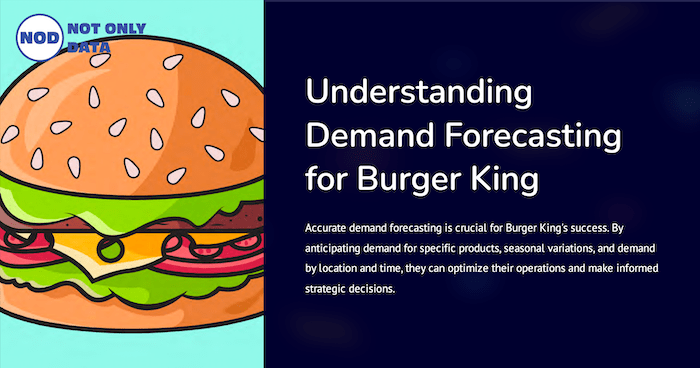
Restaurant Franchising
Franchise food companies like Burger King can significantly benefit from data-driven predictions using machine learning. By harnessing the power of AI and ML, Burger King can analyze vast amounts of data collected from various sources, including customer transactions, loyalty programs, social media, and online reviews. These insights can help identify customer preferences, popular menu items, peak hours, and regional trends, enabling them to optimize their menu offerings and marketing strategies. ML algorithms can forecast demand patterns, allowing franchisees to manage inventory efficiently and reduce wastage. Moreover, personalized marketing campaigns can be designed to target specific customer segments based on their preferences and behaviors, enhancing customer engagement and loyalty. By leveraging data-driven predictions, Burger King can make informed decisions, enhance operational efficiency, and deliver exceptional customer experiences, thus gaining a competitive edge in the highly competitive fast-food industry.
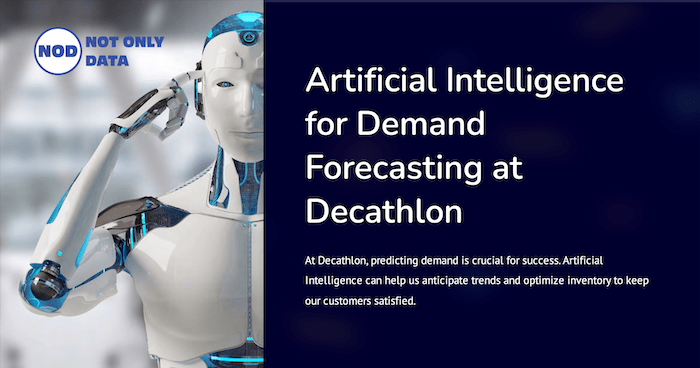
Retail companies
Retail companies like Decathlon can leverage data-driven predictions using machine learning to revolutionize their operations and customer experience. By analyzing data from various sources, such as customer behavior, online and in-store purchases, inventory levels, and external factors like weather and economic trends, Decathlon can gain valuable insights into consumer preferences and demand patterns. ML algorithms can accurately forecast inventory needs, ensuring that popular products are readily available, while avoiding excess stock. This optimization not only improves customer satisfaction but also minimizes inventory costs. Additionally, machine learning can enable personalized product recommendations and targeted marketing campaigns, tailoring promotions to individual customer preferences and increasing sales. Decathlon can also use data-driven insights to optimize store layouts and product placements for maximum customer engagement. Ultimately, by harnessing the power of data-driven predictions, Decathlon can enhance its competitiveness, boost revenue, and provide a seamless and delightful shopping experience to its customers.
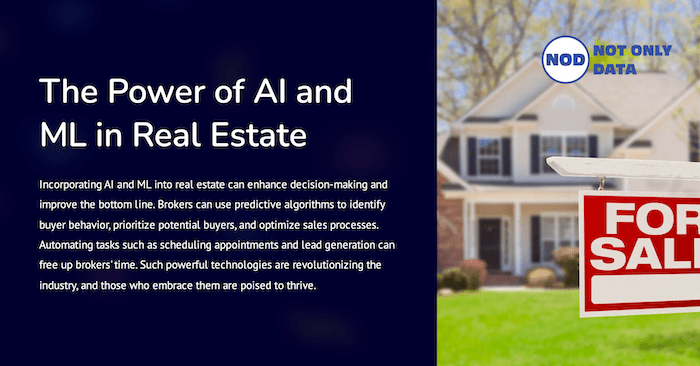
Real estate companies
Real estate companies can greatly benefit from data-driven predictions using machine learning to optimize various aspects of their business. By analyzing historical property data, market trends, demographic information, and other relevant factors, machine learning algorithms can accurately forecast property prices and rental rates. This empowers real estate companies to make informed decisions when buying, selling, or renting properties, maximizing their returns and minimizing risks. Additionally, machine learning can assist in identifying potential real estate investment opportunities and target specific buyer segments effectively. For property management, ML can predict maintenance needs and optimize rental pricing based on demand and occupancy rates. Data-driven insights also enable personalized property recommendations to potential buyers and renters, enhancing customer experience and satisfaction. By embracing data-driven predictions, real estate companies can enhance their decision-making process, stay ahead of the competition, and offer improved services to their clients, leading to business growth and success in a dynamic market.
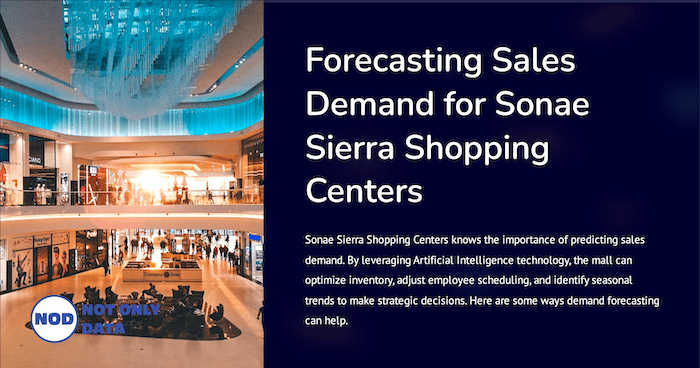
Shopping center administrators
Shopping center administrators can leverage data-driven predictions using machine learning to enhance the overall shopping experience and optimize operational efficiency. By analyzing data from foot traffic, customer behavior, and sales trends, machine learning algorithms can identify peak shopping hours, popular stores, and customer preferences. This information enables administrators to strategically plan tenant placement, allocate resources, and optimize marketing strategies to attract more visitors and increase sales. Machine learning can also predict future foot traffic and sales trends, allowing administrators to make data-driven decisions on staffing, inventory management, and promotional activities. Moreover, administrators can utilize machine learning to detect anomalies or security threats in real-time, ensuring a safe and secure environment for shoppers. Embracing data-driven predictions empowers shopping center administrators to stay proactive in meeting customer demands, improving tenant satisfaction, and achieving higher profitability in an ever-evolving retail landscape.
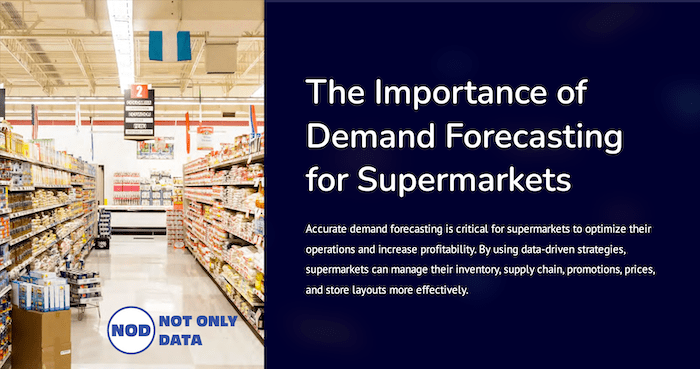
Supermarkets
Supermarkets can capitalize on data-driven predictions using machine learning to revolutionize their operations and customer experience. By analyzing vast amounts of customer data, including purchase history, preferences, and behavior patterns, machine learning algorithms can offer personalized product recommendations and promotions, increasing customer loyalty and sales. Furthermore, supermarkets can optimize inventory management by predicting demand patterns, reducing waste, and ensuring that popular products are always in stock. Machine learning can also be utilized to optimize pricing strategies, dynamically adjusting prices based on demand and competitive factors, leading to increased revenue and competitiveness. Additionally, real-time analysis of foot traffic and customer flow allows supermarkets to enhance store layouts, improving customer navigation and maximizing product exposure. Embracing data-driven predictions empowers supermarkets to stay ahead of market trends, improve customer satisfaction, and achieve operational excellence in a highly competitive industry.
